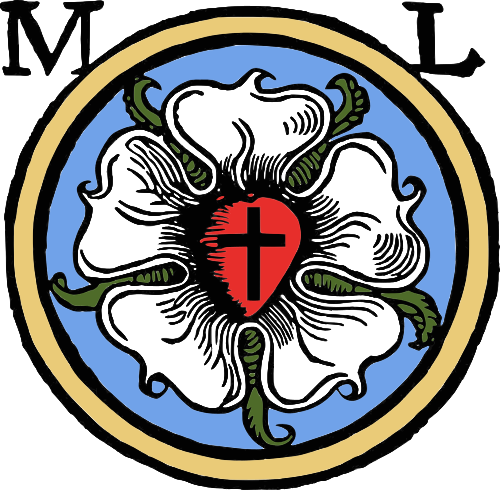Feast of the Ascension (transferred), Year B, May 12, 2024
“It is not for you to know.”
It’s hard to hear such a phrase
especially in our modern times.
We are all the grandchildren of the Enlightenment,
the age of reason,
facts,
data,
science.
We are the products of compulsory education,
most of us able to read,
most of us with access to the internet,
the repository of all human knowledge
at our fingertips.
We even have robots
who will find information for us.
Want to know how many teaspoons in a cup?
Ask Siri.
Want to hear Martin Luther King, Jr.’s
“I Have a Dream” speech?
Ask Alexa.
Sure,
there are more enduring questions
that take a bit more research.
Questions like,
“Why is the sky blue?
“What happened to the dinosaurs?”
“What caused the fall of the Roman Empire?”
A trip to the library,
a good book on the subject,
maybe a well put-together documentary,
and we feel like our question is answered.
Unfortunately,
we are also seeing the collapse
of the idea of expertise,
a demotion of education and experience
in a given field of study
in favor of what can be quickly googled,
especially if the answers we get
from social media and internet forums
give us answers that are more convenient,
fit better into our way of thinking,
or provide a sense of control
over the seeming random chaos of the universe.
But then there are those nagging,
faith-shaking,
heartbreaking questions
that Google can’t answer.
“Why do some babies just die
while the elderly languish
in pain and confusion?”
“Why does God allow bad things to happen to good people?”
“When is Jesus coming back to fix this mess?
What is taking so long?”
After Jesus’ resurrection,
his followers ask,
“So, when are you going to restore the kingdom of Israel?
When are you going to throw off
the shackles of Rome?
When are you going to get revenge
for what they did to you?
For what they do to us?”
Jesus says,
“It is not for you to know.”
I’m sure they wanted to ask,
“Why can’t we know?”
I know I want to ask that.
Jesus says,
“But you will receive power
when the Holy Spirit has come upon you,
and you will be my witnesses.”
In the original Greek,
that word we translated as “witnesses”
can also be translated as “martyrs.”
Jesus says,
“you can’t know when the Kingdom
will be restored,
but I’ll give you the power
to be martyrs.”
Worst.
Consolation prize.
Ever.
So much of this life
is unknowing.
And so much of our time
as a species
is spent in pursuit of knowing.
We want easy answers,
or at the very least,
some concrete resolution
to those deeper questions
that linger in our souls like unresolved chords.
And we will settle for cliches,
like “Everything happens for a reason,”
or “God must have needed another angel.”
Or we opt for intellectual terminus,
like, “You should never question God.”
What if we saw Jesus’ answer
less as the withholding of information
and more as a release
from the need to know?
What if,
instead of trying to find answers,
we leaned into the uncertainty?
What if we allowed mystery
to be mystery?
What if this unknowing
were a fundamental part of our faith?
How can we cultivate patience
in the unknowing?
What practices can we learn
to help us to be witnesses,
martyrs,
of the unknowing?
I think
instead of thinking we have,
or need,
or are entitled to,
neat little answers
that perfectly resolve
all our questions,
we can admit
that we don’t know.
Even
that some things
are unknowable.
We can learn
to hear the questions of our friends and family,
even the questions of our own hearts,
less as an opportunity
to be an expert,
to be the hero,
the fixer,
and more as an invitation
to bear witness
to the grief, pain,
confusion, anger—
at the heart of the question.
We can practice our core values,
hospitality, generosity, and solidarity,
by welcoming the question,
giving our time and attention to the questioner,
and living in solidarity with the grief, pain, and uncertainty
at the heart of the mystery.
We can say,
“I don’t know, but…”
“I don’t know why babies die
or the elderly linger,
but
I believe in a God who is with us in our suffering,
and I will stay with you too.”
“I don’t know why bad things happen to good people,
but
I believe in a God
who is bending the arch of the moral universe
toward justice,
and I will fight alongside you until that justice comes.”
“I don’t know when Jesus is coming back
to fix the mess the world is in,
but
I believe in a God
who comes to us in our very lives,
whether in grief
or in celebration,
and will give us the power
to endure this life with patience
while we work toward a better one
until Christ comes again.”
It is not for us to know.
It is for us to trust.
It is for us to practice the justice and grace we hope for
until the kingdom comes in its fullness.
It is for us to be free from having to know,
from needing to know,
from feeling entitled to know.
It is for us to live with wonder and awe.
It is for us to embrace the mystery.
It is for us to give God the right of expertise,
to let God be the One who knows.
It is for us to be Spirit-filled witnesses and martyrs
of the trustworthiness of God in Christ.
But,
It is not for us to know.
Amen.









